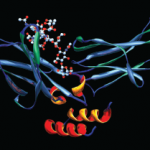Smoking and Lupus Comorbidities
Smoking may also contribute to serious comorbidities in lupus, according to Elisabet Svenungsson, MD, PhD, professor of medicine at the Karolinska University Hospital in Stockholm, Sweden. Smoking is not only associated with several autoimmune diseases like RA or SLE, but is also known to be associated with the occurrence of autoantibodies like aDNA in lupus, said Dr. Svenungsson. Recent studies also suggest that smoking is a risk factor for venous thromboembolism in both the general and lupus populations, she added.
Dr. Svenungsson and her colleagues looked at data collected from 367 lupus patients in the Karolinska Lupus Cohort. Each were given detailed questionnaires and then interviewed about their smoking habits. Of these, 53% had never smoked, including 35% formerly and 19% currently smoking. They were also tested for the presence of several autoantibodies. Rates of lupus anticoagulant, aCL IgG, ab2GP1 IgG, and Triple aPL were higher among those who had ever smoked, Dr. Svenungsson noted.
However, a puzzling trend emerged. Pathogenic aPL antibodies were more common among the former smokers than the current smokers. Antibodies not associated with thrombotic events were more common in current smokers.
Factors like duration of smoking, age at the onset of smoking, and years since quitting showed no differences with regard to the aPL isotype, she said. Former smokers who were LA positive had the highest risk of having ever had a vascular event.
The data imply that there is a strong association between SLE patients being former smokers and the occurrence of aPL antibodies in rates of vascular events. Smoking is also an environmental risk factor linked to humoral immunity, Dr. Svenungsson noted, so smoking may cause vascular injury, contributing to the increased risk.
Susan Bernstein is a freelance medical journalist based in Atlanta.


